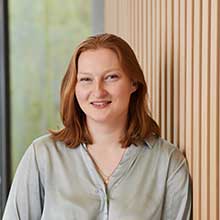
Study with us

PhD students are welcomed into the SEI community. We’re included in research groups, coffee mornings, and work alongside the whole SEI York team in the office - I feel like I’m a valued member of SEI York.
Sarah Laptain, 3rd year PhD researcher
Why York?
At the York office, you will have the opportunity to conduct research in a wide variety of fields including air quality, climate change, sustainable consumption and production, well-being and behavioural change, participatory research (including citizen science), and ecosystem services.
Although you will be based at York, there is the opportunity to work with researchers across the different SEI centres as well as with colleagues in other departments at the University of York.
As a postgraduate, you will have access to the University's facilities including the library, teaching, training and development opportunities and student support services, as well as our network of world-class researchers.

We are looking for enthusiastic, motivated and talented students to undertake postgraduate study in our key research areas.
What next?
Find out if you are eligible to apply for a postgraduate opportunity with SEI York. For informal enquiries please contact: sei-phd-enquiries
Eligibility
We have limited places available for postgraduate study so have strict eligibility criteria. You need a good (First or 2:1) undergraduate degree, excellent English proficiency and a proven dedication to environmental research.
Details of fees for studying at York can be found here, which also provides information on how you can get help with obtaining funding.
Most of the PhDs we have obtained funding for are advertised on findaphd.com.
Here are some useful links for individuals coming from abroad:
- Country-specific information at the University of York
- The Open Society Foundations award grants, scholarships, and fellowships
- Foreign students university scholarships search
- Study UK - British Council
- Chevening - find awards in your country or territory
- Commonwealth Scholarship - Commonwealth students only
Application procedure
The first step in applying for a PhD at SEI York is to get in touch with your potential supervisor. A list of SEI staff eligible to be first or second supervisor can be found below.
After you have contacted a potential supervisor, they may request further information on your research ideas and follow up with a video/phone call. If they feel your work is a good fit for SEI, then you will be invited to formally apply through the University of York 'postgraduate applications' webpage, usually via Environmental Economics and Environmental Management MPhil or PhD.
Potential supervisors
- Steve Cinderby - community resilience, urbanisation and their links to well-being
- Simon Croft - multi-regional input-output modelling, supply chain tracking and analysis, impacts of global supply chains, sustainable consumption and production, food systems
- Alison Dyke - citizen science, public engagement and governance aspects of plant health
- Jon Ensor - adaptation, resilience and transformation; participatory technology development, community- and rights-based approaches to the governance of environmental change
- Jon Green - agricultural commodity trade, sustainable consumption and production, supply chain tracking and analysis, biodiversity impact metrics, conservation science, natural capital, and corporate engagement
- Gary Haq - transport policy, mobility and practice, air quality management, behavioural change, community resilience, population ageing and climate change, carbon reduction and local authorities
- Andreas Heinemeyer - terrestrial carbon cycling, with a particular focus on peatlands
- Kevin Hicks - air pollution impacts on terrestrial ecosystems, ecosystem services, and policy engagement
- Johan Kuylenstierna - climate change and air pollution, policy processes
- Chris West - sustainable consumption and production, supply-chain impacts, food systems and commodity trade
- Sarah West - citizen science, participatory research, science communication, environmental education
